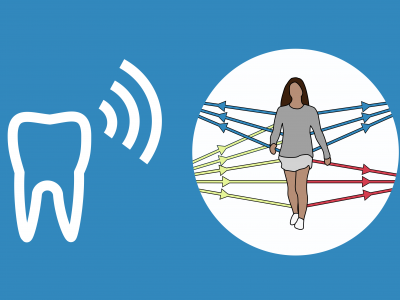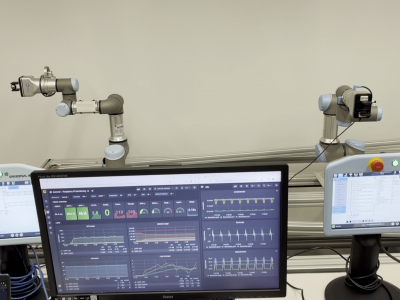IoT
The main objective of this project is to design and develop a collaborative framework which facilitates real-time tracking of a target person even when GPS signal is not available, while collecting motion data to infer his or her lifestyle and health status. The framework orchestrates a wide range of technologies such as localization technologies, machine learning and AI, sensor data analytics and cloud computing. The overall framework design also takes into consideration the culture, lifestyles, behaviours and infrastructures of ASEAN countries.
- Categories:
 574 Views
574 ViewsCars, mobile phones, and smart home devices already provide automatic speech recognition (ASR) by default. However, human machine interfaces (HMI) in industrial settings, as opposed to consumer settings, operate under different conditions and thus, present different design challenges. Voice control, arguably the most natural form of communication, has the potential to shorten complex command sequences and menu structures in order to directly execute a final command.
- Categories:
 557 Views
557 Views
This video shows the working process of RF-EH WSN and the maximum energy collection distance (14m).
- Categories:
 59 Views
59 ViewsThe human gait is unique and so is the impact of a walking human on the propagation of wireless signals within a wireless network. Using appropriate pattern recognition techniques, a person can thus be identified just from a time series of Received Signal Strength (RSS) measurements. This dataset holds bidirectional RSS measurements recorded within a mesh network of four Bluetooth sensor devices. During the measurements, a total of 14 subjects walked individually through the setup. A total of more than 10,000 recordings are provided.
- Categories:
 640 Views
640 ViewsThe Bluetooth 5.1 Core Specification brought Angle of Arrival (AoA) based Indoor Localization to the Bluetooth Standard. This feature is usually referred to as Bluetooth Direction Finding. Besides localization, this new technology can be used to implement a radar system just using commodity Bluetooth chipsets. This dataset holds measurements recorded using a demonstration setup for such kind of radar system. Along with this dataset, the experimental setup, the used sensor devices, and the structure of the provided data files are described in detail.
- Categories:
 370 Views
370 ViewsIndustrial cyber-physical systems (ICPS), which is the backbone of Industry 4.0, are the result of adapting emerging information communication technologies (ICT) to the industrial control systems (ICS). ICPS utilize autonomous robotic arms to accomplish manufacturing tasks. These arms follow a certain predetermined trajectory during the task.
In this dataset, we present four files generated from a setup that contains two Universal Robot UR3e collaborative robotic arms:
- Categories:
 1116 Views
1116 ViewsDatabase of energy consumption (Eihop) and Transmission Power P0, resulting from the manipulation of the variables: Nb (Number of bits per frame), i (Number of hops to the destination) and d (Distance between origin and destination) in Tmote Sky device Ultra-low power IEEE 802.15.4 (Moteiv). DataSet used in the learning process, via Machine Learning, of the transmission behavior of this device.
- Categories:
 491 Views
491 Views
This dataset contains one month of the binary activity of the 4060 urban IoT nodes. Each record in the dataset presents the node ID, the time stamp, the location of the IoT node in latitude and longitude, and also the binary activity of the IoT node. The main purpose of this dataset is to be used as part of distributed denial of service (DDoS) attack research.
- Categories:
 659 Views
659 Views
Appendix of Optimizing systemic redundancy of traffic sensor networks while maintaining resilience: New evidence from using graph learning
- Categories:
 14 Views
14 Views




